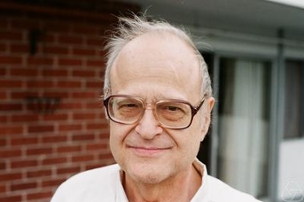
Paul Robert Chernoff
Professor of Mathematics, Emeritus
Paul Robert Chernoff, born June 21, 1942, in Philadelphia, and a longtime member of the Department of Mathematics at the University of California, Berkeley, died on January 17, 2017. His quick mind and quick wit were enjoyed by both his colleagues and his students. Paul made a number of major research contributions to mathematical knowledge, primarily in the general area of functional analysis, in directions related to the foundations of quantum mechanics.
Paul was the son of the late Drs. Benjamin and Edith Chernoff. He attended the Central High School of Philadelphia, and graduated summa cum laude from Harvard University in 1963. After earning his Ph.D. at Harvard in 1968 he joined Berkeley’s mathematics faculty, initially as a National Science Foundation Postdoctoral Fellow. Over the next years he was promoted through the ranks, becoming a professor in 1980.
Paul’s doctoral thesis made a major contribution to the then-young topic of product formulas for semigroups. He made further contributions to this topic a number of times over subsequent years, and he is probably best-known for his leadership in dealing with this topic. In quantum physics the evolution of a quantum system is modeled by a semigroup of operators on a Hilbert space. For complicated systems this semigroup can be quite challenging to describe. But semigroups have “generators,” which are single operators. In the applications to quantum physics these generators are often the sum of the generator of a somewhat simple “free” semigroup, and of a relatively small generator of a complicated semigroup. One can try to describe the semigroup for the sum of two such generators by certain product formulas. Making sense of such product formulas is thus a central problem for quantum physics. It is to this problem that Paul made major contributions. One of his specialized papers on this topic has by now been cited 83 times in the research literature.
The generators of semigroups are usually “unbounded” operators, and it is often challenging to determine how to arrange the formal expressions that one is led to in modeling specific quantum systems so that they do generate semigroups (which will then model how the systems evolve). Paul made a number of contributions to this topic, some of which were quite influential. In particular he treated such physically important classes of operators as Schrödinger operators, Dirac operators, and Klein-Gordan operators. Paul wrote a monograph on this topic and product formulas that has been highly influential, entitled Product Formulas, Nonlinear Semigroups, and Addition of Unbounded Operators (Memoirs of the American Mathematical Society, No. 140, 1974).
Beginning in the mid-1970s, Paul also began investigating systems from classical physics that are infinite-dimensional in nature (such as fluid flow). One of the major approaches to classical physics systems is that of Hamiltonian mechanics. During the following years Paul made a number of important contributions to the subject of infinite-dimensional Hamiltonian systems. In particular, he wrote a monograph on this topic with his colleague Jerold E. Marsden which has been highly influential: Properties of Infinite Dimensional Hamiltonian Systems (Lecture Notes in Mathematics, Vol. 425, Springer-Verlag, 1974).
Paul also wrote a number of quite short papers on other topics, and many of these papers are considered little “gems” for their incisive clarity. One example is his paper “A Simple Proof of Tychonoff’s Theorem via Nets” (The American Mathematical Monthly 99(10):932-934). Over the whole course of his professional life Paul also made numerous contributions to the “Problems and Solutions” section of this journal.
Four mathematicians wrote their doctoral dissertations under Paul’s supervision. If one counts their successful doctoral students, Paul has 10 “mathematical descendants” at this point.
Paul was a respected and very popular teacher. Three times he was honored with a Distinguished Teaching Award chosen by the Mathematics Undergraduate Student Association. He was especially noted for the clarity of his lectures.
Paul served on many departmental committees over the years, such as the Library Committee, and especially the Preliminary Examination Committee, for which he often served as chair. He also did some service as one of the vice chairmen of the mathematics department, and he served several times on the College of Letters and Science’s Committee on Quantitative Reasoning, and on the University Committee on Prizes.
The Berkeley campus awarded Paul the Lili Fabilli and Eric Hoffer Essay Prize for “In What Additional Field Should a Nobel Prize Be Awarded?” an essay that Paul wrote concerning Nobel prizes, and why there is no Nobel prize for mathematics.
Among Paul’s many services to the mathematics profession, he served for a period as the treasurer for the Pacific Journal of Mathematics.
Paul was a fellow of the American Mathematical Society and of the American Association for the Advancement of Science. He also was a member of the Mathematical Association of America.
He enjoyed cartooning and painting and was the author of numerous limericks.
Paul is survived by his brothers Arthur Chernoff and Donald Chernoff, his sister Ruth Sacks, and by a nephew and three nieces.
Marc Rieffel
2018
